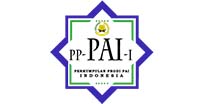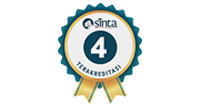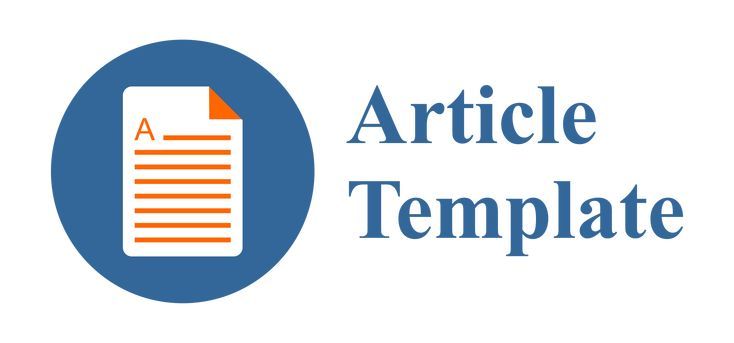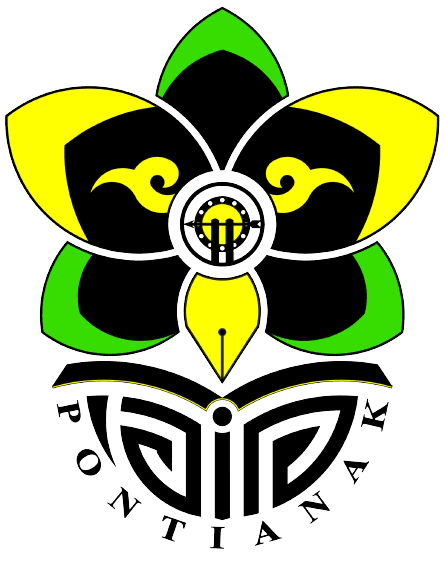From QS Luqman Verses 13–19: Weighing the Roles of Parents and Teachers in Moral Education
DOI:
https://doi.org/10.24260/atturats.v19i2.4982Keywords:
Islamic Religious Education,, Moral Education,, QS. Luqman 13–19,, Parental Role,, Teacher’s Role,Abstract
This study focuses on moral education by examining the roles of parents and teachers through the lens of QS. Luqman verses 13–19. The point of departure is the recognition that Islamic education is not merely concerned with cognitive achievement but fundamentally aims to cultivate holistic human beings balanced in faith, worship, and social ethics. The central argument of this research is that moral education must serve as the foremost priority in every educational process, as it constitutes the foundation for all forms of intellectual attainment. The research employs a descriptive qualitative method with a literature-based approach. Primary data are drawn from QS. Luqman verses 13–19, while secondary data are obtained from relevant scholarly works, including journals, books, and other academic documents. Data analysis was carried out through processes of condensation, presentation, and conclusion drawing, thereby yielding a comprehensive understanding of the theme under study. The findings demonstrate that parents play crucial roles through guidance, motivation, role modeling, and supervision in shaping children’s moral foundations from an early age. Teachers extend this formative process within the school environment through instruction, exemplary conduct, and the cultivation of an educational atmosphere conducive to ethical development. When these two roles operate in synergy, Qur’anic values can be instilled consistently and comprehensively. QS. Luqman verses 13–19 provide a normative framework that emphasizes monotheism (tauhid), filial piety, divine accountability, disciplined worship, enjoining good and forbidding evil, patience, and humility in social interaction. The significance of this study for the discourse of Islamic Religious Education lies in its affirmation that Islamic education must transcend the mere transmission of knowledge and move toward the formation of character. This research reasserts the importance of integrating family and school education in moral development while offering a Qur’anic foundation for strengthening both curriculum and praxis in contemporary Islamic education.
Penelitian ini berfokus pada pendidikan akhlak dengan menelaah peran orang tua dan guru melalui perspektif QS. Luqman ayat 13–19. Titik tolak kajian ini adalah pengakuan bahwa pendidikan Islam tidak hanya berkaitan dengan pencapaian kognitif, melainkan secara mendasar bertujuan membentuk manusia seutuhnya seimbang dalam iman, ibadah, dan etika sosial. Argumen utama penelitian ini menegaskan bahwa pendidikan akhlak harus menjadi prioritas utama dalam setiap proses pendidikan, sebab akhlak merupakan fondasi bagi seluruh bentuk pencapaian intelektual. Penelitian ini menggunakan metode kualitatif deskriptif dengan pendekatan kepustakaan. Data primer bersumber dari QS. Luqman ayat 13–19, sedangkan data sekunder diperoleh dari karya-karya ilmiah relevan, seperti jurnal, buku, dan dokumen akademik lainnya. Analisis data dilakukan melalui tahapan kondensasi, penyajian, dan penarikan kesimpulan, sehingga menghasilkan pemahaman yang komprehensif terhadap tema yang dikaji.Hasil penelitian menunjukkan bahwa orang tua memiliki peran penting melalui bimbingan, motivasi, keteladanan, dan pengawasan dalam membentuk dasar moral anak sejak usia dini. Guru melanjutkan proses pembentukan ini di lingkungan sekolah melalui pengajaran, teladan, serta penciptaan suasana pendidikan yang kondusif bagi perkembangan etika. Ketika kedua peran ini berjalan secara sinergis, nilai-nilai Al-Qur’an dapat ditanamkan secara konsisten dan menyeluruh. QS. Luqman ayat 13–19 memberikan kerangka normatif yang menekankan tauhid, berbakti kepada orang tua, kesadaran akan pertanggungjawaban di hadapan Allah, kedisiplinan dalam ibadah, amar ma’ruf nahi munkar, kesabaran, dan kerendahan hati dalam interaksi sosial. Signifikansi penelitian ini bagi wacana Pendidikan Agama Islam terletak pada penegasannya bahwa pendidikan Islam harus melampaui sekadar transfer pengetahuan dan bergerak menuju pembentukan karakter. Penelitian ini menegaskan pentingnya integrasi pendidikan keluarga dan sekolah dalam pembinaan akhlak, sekaligus menawarkan landasan Qur’ani untuk memperkuat kurikulum dan praksis pendidikan Islam kontemporer.
Downloads
References
Anshory, M. I., Azis, M. A., Chabib, M., & Sutrisno, A. (2025). Konsep Pendidikan Akhlaq dalam Perspektif Islam. TSAQOFAH, 5(2), 1678–1694. https://doi.org/10.58578/tsaqofah.v5i2.5014
Daheri, M., & Warsah, I. (2019). Pendidikan Akhlak: Relasi Antara Sekolah dengan Keluarga. At-Turats, 13(1), 3–20. https://doi.org/10.24260/at-turats.v13i1.1285
Erwin, E. (2023). The Existence of Islamic Education Towards Moral Development in the 5.0 Era. Ijrer. https://doi.org/10.51574/ijrer.v3i1.970
Fatimah, S. (2018). Peran Guru Pendidikan Agama Islam Dalam Menanamkan Akhlakul Karimah Peserta Didik di SMPN 1 Sukadana Lampung Timur Tahun Pelajaran 2018/2019 [Skripsi, IAIN Metro]. https://repository.metrouniv.ac.id/id/eprint/2876/1/SITI%20FATIMAH.pdf
Huda, M., Arif, M., Abdul Rahim, M. M., & Anshari, M. (2024). Islamic Religious Education Learning Media in the Technology Era: A Systematic Literature Review. At-Tadzkir. https://doi.org/10.59373/attadzkir.v3i2.62
Ibrahim, M., Islam, S., Zohriah, O., & Azid, M. (2024). Addressing Contemporary Ethical and Moral Issues Through Islamic Education. Jois. https://doi.org/10.35335/kbbzar83
Irfan, I., & Sain, Z. H. (2024). The Crucial Role of Islamic Religious Education in Shaping Children’s Character: Psychological and Spiritual Review. Qalamuna Jurnal Pendidikan Sosial Dan Agama. https://doi.org/10.37680/qalamuna.v16i1.4902
Malik, M. S., & Maslahah, M. (2021). Revitalization of the Concept of Educational Axiology: Perspectives of Islamic Philosophy. Belajea Jurnal Pendidikan Islam. https://doi.org/10.29240/belajea.v6i2.2590
Miles, M. B., & Huberman, A. M. (2014). Qualitative data analysis: A methods sourcebook (J. Saldaña, Ed.; Third edition). SAGE Publications, Inc.
Mokodenseho, S., Mokoagow, H., Pobela, P. R., Kobandaha, C. P., & Sabir, R. (2024). Analysis of the Effectiveness of the Use of Tafsir in Islamic Religious Education on the Achievement of Character Education of Junior High School Students in Central Java. The Eastasouth Journal of Learning and Educations. https://doi.org/10.58812/esle.v2i01.230
Muhdi, A., Sudadi, S., Antoni, A., Daelami, M. S., & Judijanto, L. (2023). The Urgency of Islamic Boarding Schools in the Contemporary Era. Al-Hijr Journal of Adulearn World. https://doi.org/10.55849/alhijr.v2i3.575
Ningsih, T., Kurniawan, H., & Nurbaiti, A. (2024). Moral and Intellectual Integration in Islamic College. International Journal of Social Science and Human Research. https://doi.org/10.47191/ijsshr/v7-i07-99
Ramadhani, N., & Musyarapah. (2024). Tujuan Pendidikan Islam dalam Membentuk Generasi Berakhlak Mulia. Jurnal Pendidikan Nusantara, 3(2), 78–91. https://doi.org/10.55080/jpn.v2i2.88
Riswan, R., Trisnamansyah, S., Hanafiah, H., & Sauri, S. (2021). Implementation of Religious-Based Madrasah Performance Management For Improving Student’s Akhlakul Karimah at Madrasah Aliyah. Eduvest - Journal Of Universal Studies, 1(10). https://doi.org/10.59188/eduvest.v1i10.228
S, M. T., & Riadi, A. (2020). Implikasi Paedagogis Alquran Surat Luqman Ayat 13-19 Tentang Materi Dasar Pendidikan Agama Islam. Jurnal Penelitian, 14(2), 347. https://doi.org/10.21043/jp.v14i2.8139
Saputri, A. N., Lessy, Z., Siskowati, E., & Illahi, R. (2022). Urgency of Islamic Moral Education During Early Childhood in the Perspective of Hadith. Holistic Al-Hadis. https://doi.org/10.32678/holistic.v8i1.5630
Syarifuddin, Hairunnisa, & Rahmawati, L. (2014). Pembelajaran Akidah Akhlak di Madrasah Tsanawiyah Negeri Model Darussalam Martapura Kabupaten Banjar. TASHWIR, 1(2). https://doi.org/10.18592/jt.v1i2.164
Syuri, L. N. L. (2020). Peran Guru Akidah Akhlak dalam Membangun Kedisiplinan Siswa Kelas VII di MTs. Muhammadiyah 3 Yanggong Jenangan Ponorogo [Skripsi, IAIN Ponorogo]. https://etheses.iainponorogo.ac.id/11083/1/ETHESIS%20210316235%20LU%27LU%20NUR%20LUTHFIYAH%20SYURI.pdf
Wardah, A. R. (2023). Management of Santri Moral Education at the Modern Islamic Boarding School. International Journal of Asian Education. https://doi.org/10.46966/ijae.v2i4.250
Yayasan Penyelenggara Penerjemah/Pentafsir Al-Qur’an (1967)/ Tim Penyempurnaan Terjemahan Al-Qur’an (2016-2019) (Ed.). (2019). Al-Qur’an dan Terjemahannya Edisi Penyempurnaan 2019. Lajnah Pentashihan Mushaf Al-Qur’an.
Zed, M. (2014). Metode Penelitian Kepustakaan. Yayasan Pustaka Obor Indonesia.
Downloads
Published
How to Cite
Issue
Section
License
Copyright (c) 2025 Siti Fatmawati

This work is licensed under a Creative Commons Attribution-NonCommercial 4.0 International License.











